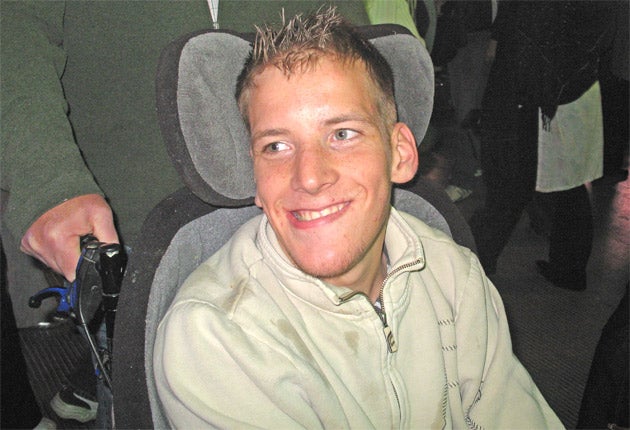Charity attacks plan to cut legal aid for victims of NHS neglect

Your support helps us to tell the story
From reproductive rights to climate change to Big Tech, The Independent is on the ground when the story is developing. Whether it's investigating the financials of Elon Musk's pro-Trump PAC or producing our latest documentary, 'The A Word', which shines a light on the American women fighting for reproductive rights, we know how important it is to parse out the facts from the messaging.
At such a critical moment in US history, we need reporters on the ground. Your donation allows us to keep sending journalists to speak to both sides of the story.
The Independent is trusted by Americans across the entire political spectrum. And unlike many other quality news outlets, we choose not to lock Americans out of our reporting and analysis with paywalls. We believe quality journalism should be available to everyone, paid for by those who can afford it.
Your support makes all the difference.A plan to cut legal aid for patients left physically or mentally damaged by NHS care is being legally challenged by a medical safety charity.
Action against Medical Accidents (AvMA) has issued judicial review proceedings against the Government on the basis that the cuts are "irrational and unfair". Seriously injured patients, such as babies who suffer brain damage as a result of substandard obstetrics care, will be denied the compensation that their families need to provide proper care for them, according to AvMA.
The Ministry of Justice insists that patients will not suffer because legal aid cases will be picked up by no win, no fee solicitors. But research by AvMA suggests half of all cases currently taken on would be rejected by solicitors because they are considered too complex and "risky".
The NHS Litigation Authority, which handles the negligence claims against the NHS, believes the proposals would exclude the neediest victims and "result in an overall increase in public expenditure, rather than the decrease that is sought". The proposal, which ministers claim will save £10m a year, is part of a series of controversial clauses in the Legal Aid, Sentencing and Punishment of Offenders Bill, which is making its way through Parliament.
Other critics include Lord Justice Jackson, whose independent review from 2010 is the basis for sweeping changes to the costs of civil litigation in the second part of the Bill. They have warned the Government that its plans to cut legal aid by 17 per cent will hit poor people hardest.
In a speech to the Cambridge Law Faculty earlier this month, Lord Jackson said: "Let me make it plain that the cutbacks in legal aid are contrary to the recommendations in my report... the maintenance of legal aid at no less than the present levels makes sound economic sense and is in the public interest." He added: "Of all the proposed cutbacks in legal aid, the removal of legal aid from clinical negligence is the most unfortunate."
Dr David Bogod, a consultant obstetric anaesthetist from Nottingham, said finding out what went wrong during a birth trauma [see box] was "almost impossible without forensic legal inquiry".
"The [changes] will increase the financial burden for families harmed by negligent medical practice, and will greatly weaken one of the important drivers of clinical safety," he said.
Peter Walsh, the chief executive of AvMA, said: "Ken Clarke's department might save a little money, but the cost will simply be heaped on the NHS. Some of the most vulnerable people in society, injured by negligent treatment at the hands of a State body, will be denied access to justice.
"And the NHS will be deprived of the opportunity of learning from mistakes, [which are] often only recognised because of a legal challenge."
Andy Slaughter MP, the shadow justice minister, also urged the Government to reconsider.
A spokesman for the Ministry of Justice said: "Victims will be able to receive legal aid to fund the most serious and complex cases, where a 'no win, no fee' agreement is not available, and where the failure to provide funding would breach their human rights. We need to ensure that legal aid is targeted at those who need it most."
Case study: Trish Towle and Aaron Tring
In June this year, the NHS accepted responsibility for the brain damage suffered by Aaron Tring, now 26, during childbirth. It left him quadriplegic: he cannot talk, walk or feed himself and is cognitively impaired.
Despite being told it was just "bad luck" for years, his mother, Trish Towle, 59, was persuaded to seek legal advice in 2004 and the case was fought with legal aid. It took seven years and 15 medical opinions, but Aaron's long-term future has been guaranteed by a multimillion-pound compensation payout. "I have worked all my life, double night shifts in between caring for Aaron, but even selling my house would not have covered the legal costs. I am so relieved that Aaron will now never have to go into care and someone has been held to account for the life he never had."
Join our commenting forum
Join thought-provoking conversations, follow other Independent readers and see their replies
Comments